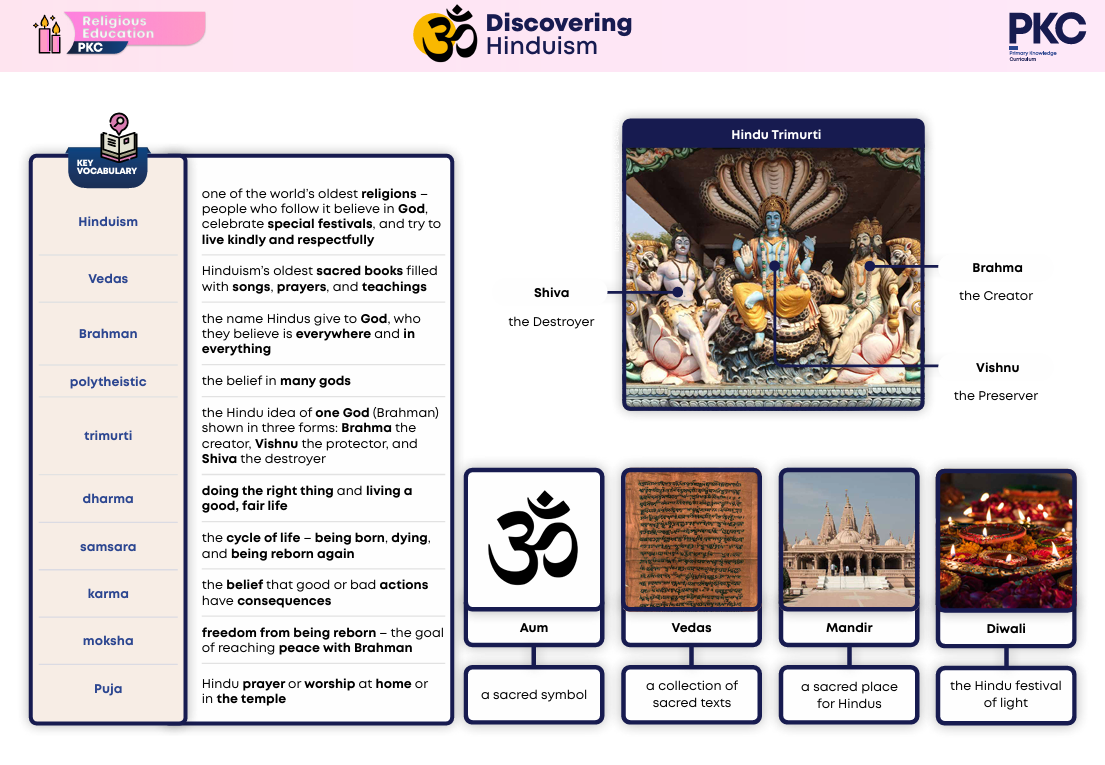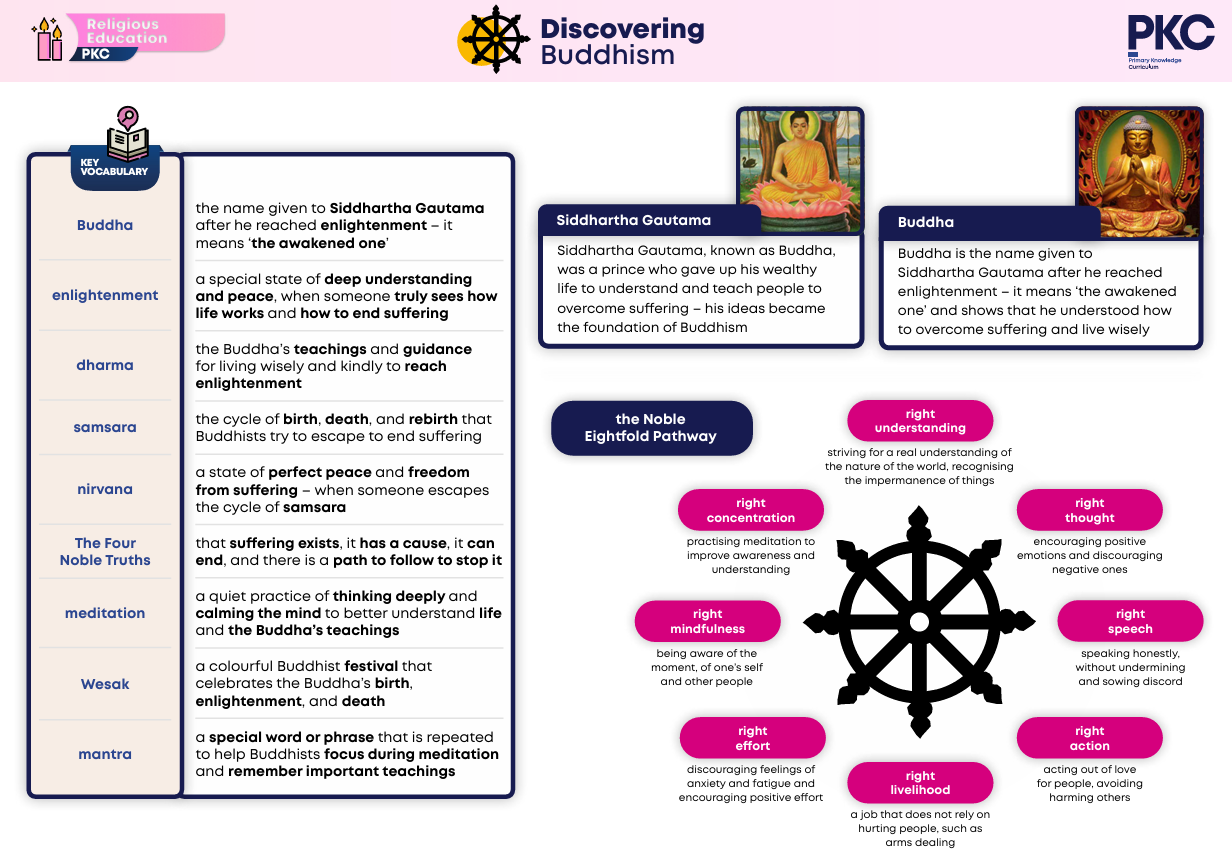Spring 1
Year 3 and 4 – Hinduism

Key end points for this unit on Hinduism are:
- Hinduism is a religion followed by Hindus.
- Many Hindus worship many gods and goddesses that are manifestations of Brahman.
- Hindus believe in reincarnation, the belief that the soul is eternal and passes through a cycle of successive.
- Karma is the idea that the future incarnation is dependent on how the previous life was lived.
- Hindu worship is called Puja and can happen at a shrine at home or in a mandir. Diwali is known as a Hindu festival of lights.
This unit introduces pupils to the key beliefs and practices of Hinduism. Pupils will explore the idea of Brahman, the universal God in Hinduism who is believed to be present in everything. They will learn about the Trimurti— three forms of Brahman: Brahma (the creator), Vishnu (the preserver), Shiva (the destroyer).
Year 5 and 6

Key end points for this unit on Buddhism are:
- Buddhists do not worship a god.
- Buddhists work to free themselves from suffering.
- The Middle Way explains how Buddhists can lead a good life.
- Many Buddhists meditate, which means quiet thought.
- Wesak celebrates the Buddha's birthday, his enlightenment and death.
This unit introduces pupils to the foundational beliefs and practices of Buddhism, beginning with the life of Siddhartha Gautama, the historical figure known as the Buddha. By exploring his journey from prince to spiritual teacher, pupils gain insight into the origins of Buddhist thought and the values that underpin the religion.
